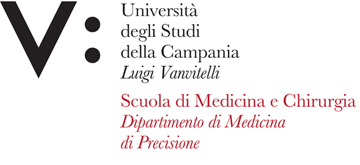Serena VETTORI
Insegnamento di AFP REUMATOLOGY
Corso di laurea magistrale a ciclo unico in MEDICINA E CHIRURGIA
SSD: MED/16
CFU: 1,00
ORE PER UNITÀ DIDATTICA: 10,00
Periodo di Erogazione: Annualità Singola
Italiano
| Lingua di insegnamento | Inglese |
| Contenuti | Frequenza del Reparto di Reumatologia e dell'Ambulatorio di |
| Testi di riferimento | NA |
| Obiettivi formativi | Acquisire conoscenze sui principali quadri clinici e sierologici per i quali |
| Prerequisiti | -Conoscenza dell'Anatomia Umana, della Fisiologia e Fisiopatologia |
| Metodologie didattiche | Attività pratica con i pazienti. |
| Metodi di valutazione | Esame di un caso clinico. |
| Altre informazioni | NA |
| Programma del corso | -Esame obiettivo finalizzato a ricercare: |
English
| Teaching language | English |
| Contents | Attendance of the inpatient Rheumatology Clinic and of the outpatient |
| Textbook and course materials | NA |
| Course objectives | -Learning the major clinical/serological abrnormalities requiring a |
| Prerequisites | - Anatomy, General Physiology and Pathophysiology; |
| Teaching methods | Practical activities with patients. |
| Evaluation methods | Presentation of a clinical case. |
| Other information | NA |
| Course Syllabus | Physical examination to look for: |








